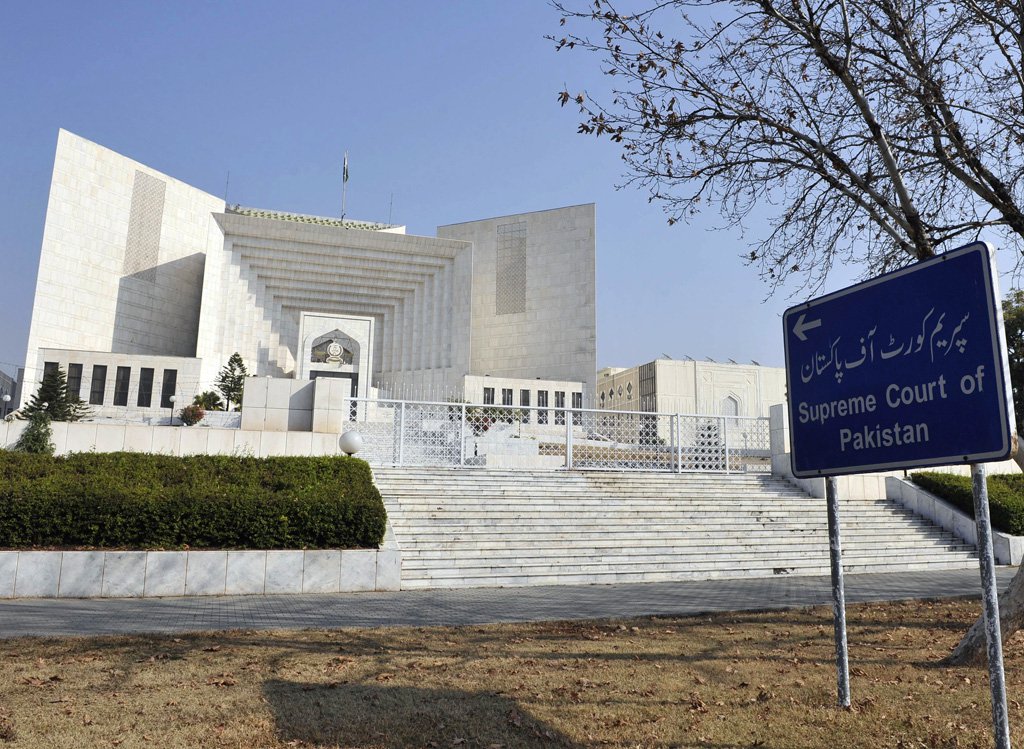
The bench asked the top judge to fix the hearing before a three-member bench next week.
The case was taken up after 15 months. It may be noted here that a two-member bench headed by Justice Sheikh Azmat Saeed had suspended the PHC verdict against the military court conviction while hearing the same plea in November 2018.
Today's hearing
The counsel representing the 73 convicts said the apex court suspending an acquittal order was a first of its kind. He lamented that the individuals remained imprisoned despite the PHC verdict.
He further maintained that the top court cannot pass the suspension order without a hearing. "Unfortunately no order can be passed against the military. It doesn't happen anywhere in the world."
SC halts release of 73 military court convicts
The PHC verdict
The October 2018 PHC verdict authored by Justice Waqar Ahmad Seth and Justice Lal Jan Khattak was presented by Pakistan as evidence before the International Court of Justice in the Kulbhushan Jhadav case against India to assert the military court's convictions were reviewed by superior courts.
It was on the basis of this verdict that the ICJ did not set aside the trial of Jhadav.
The PHC verdict was announced after three-day-long detailed arguments in an in-camera hearing.
There were a total of 74 appeals on the cause list against the military court’s convictions and the majority of them of capital punishment. In addition, there were also cases of life imprisonment and sentences of up to 20 years in jail.
In the detailed judgment, the bench rejected confessional statements of all convicts by elaborately discussing the flaws in them. It also discussed whether the right to a fair trial under Article 10-A of the Constitution was extended to the convicts.
The bench observed that the entire judicial confessional statements recorded in Urdu were ‘in one and the same handwriting and in one specific tone/style’.
“It is admitted at the bar that for Khyber Pakhtunkhwa there were in all three Field General Court Martial courts and each and every document on file would show that all the three courts were functioning on one and the same pattern, not even a single accused has deviated differently to the questions put to him,” it pointed out.
The bench said the questions put to all accused were same with exactly the same answers in all cases also for the purpose of engaging a private counsel “The same format would reflect there were planned proceedings in all the said three courts.”
“It is observed from the record, so produced that they have erased each and every date, the names of the prosecution’s witnesses, their designations, and many other things.

1721394099-0/BeFunky-collage-(22)1721394099-0-165x106.webp)


1732762837-0/Taylor-(3)1732762837-0-165x106.webp)












COMMENTS
Comments are moderated and generally will be posted if they are on-topic and not abusive.
For more information, please see our Comments FAQ